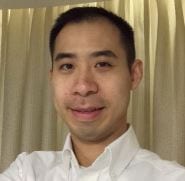Our chat with a Senior Life Sciences Editor at Thomson Reuters
By uczjsdd, on 15 October 2015
 Dr Jimmy Ho gained a PhD from UCL in Biological Chemistry and is now a Senior Science Editor at Thomson Reuters, a provider of intellectual information. We spoke to him about his career and top tips for PhDs looking to move out of academia.
Dr Jimmy Ho gained a PhD from UCL in Biological Chemistry and is now a Senior Science Editor at Thomson Reuters, a provider of intellectual information. We spoke to him about his career and top tips for PhDs looking to move out of academia.
How did you move from your PhD to your current role?
It was towards the end of my PhD when I felt that a career as a research chemist was not for me, but I wanted to continue to utilise the skills I’d obtained. I applied for a number of science jobs, and was offered a job as a science editor at Thomson Reuters.
What does a normal working day look like for you?
My daily work routine typically entails the extraction, assimilation and content-integrity management of Life Science data from journals, patents and conferences. The data is subsequently updated in our multiple online databases, which are subscribed to by customers all around the world in both the pharmaceutical industry and academic institutes to aid them with their research. Other tasks will include assisting clients (who could be from industry or academia), supporting colleagues with various projects and ad hoc tasks.
Which skills gained from your PhD are useful to you now?
A PhD is not a prerequisite for my role, however I would say it is beneficial in the long run if you intend to make a career in Science or Healthcare. Most of my colleagues have either got a PhD or a Masters degree. The skills that I acquired from my PhD have come in very useful, particularly when it comes to analysing data, planning projects, problem-solving or simply coming up with innovative ideas for the business.
What are the best things about your role?
The best things are having the chance to learn different skills, from customer relationship management to leading and managing small departmental projects; as well as getting to participate in some international travel to conferences. On top of that, I feel the work I do is making a contribution towards science and medicine, and bettering society.
There is also a good work-life balance since I work on a flexi-time system, and occasionally I have the option to work from home.
What are the down sides?
As with most companies nowadays, there are a lot of organisational changes which take place every so often, and that can lead to a sense of insecurity. Also, job progression is quite static at the moment. The work I do is routinely-formatted, which can be a good thing for some people, however at times it can feel like the role might lack challenge and you can start to feel complacent.
The challenge I face now is to decide which direction I want to take my career, and whether I wish to advance in my role as a Science Editor, or to look for alternative positions within Thomson Reuters where I can remain with the company and transfer my skills and experience.
Where do you see yourself going from here?
Progression upwards is always possible however it can feel a little stagnant at times since there are not many openings at a senior level. But the advantage of working for a large firm like Thomson Reuters is you also have the option of applying for internal roles in different departments or business sectors. Otherwise if roles don’t come up internally then people may have to move to other companies when roles arise.
What tips would you give our PhD students and early-career researchers wanting to get into your line of work?
The competition nowadays is fierce, so with any industry I would strongly suggest that people research the area they wish to enter, so they know what they’re getting themselves into, and more importantly try to get some work experience through an internship. To enhance a CV, I’d recommend taking on extracurricular responsibilities, networking and making good connections is always a plus too. When invited to an interview, people should prepare well beforehand; have knowledge about the industry and the prospective employer. Engage with the interview positively and confidently; and always take it as an experience to learn from – regardless of the final outcome.
 Close
Close

